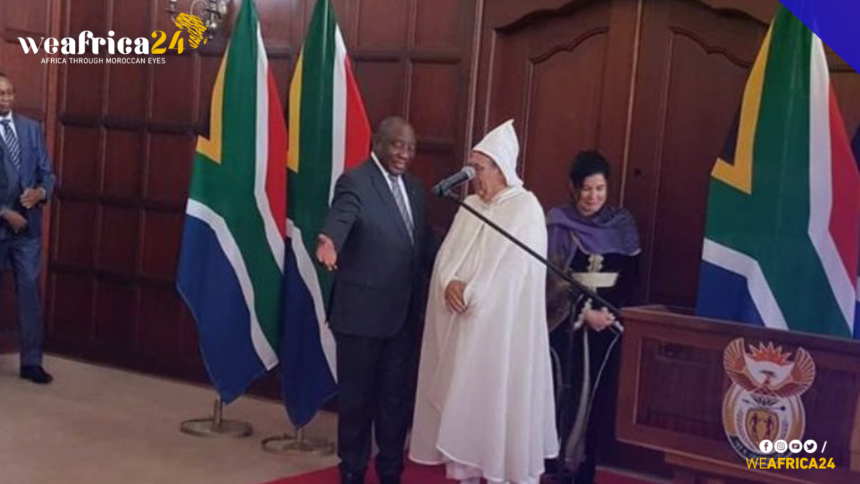In a recent analysis of the potential repercussions of continued tensions between Morocco and South Africa, a recent political paper from the “International Center for Strategic Analysis” anticipates a growing divergence in political perspectives between the two nations in the coming periods, particularly regarding the management of various issues, with the Western Sahara file taking center stage.
The paper suggests that developments in bilateral relations may mirror the tension witnessed in 2004 when Pretoria’s ambassador left the Kingdom of Morocco following the South African government’s recognition of the Polisario Front.
The same political document points to King Mohammed VI’s August 20, 2022 speech, emphasizing that “the Western Sahara file is now the lens through which Morocco views the world, measuring the sincerity of friendships and the effectiveness of partnerships.” It recalls the political and diplomatic distancing between Rabat and Tunis following the latter’s reception of the separatist leader during the “TECAD” summit held in Tunisia in late 2022, directly following King Mohammed VI’s speech.
The economic interactions between Rabat and Pretoria are expected to be affected, despite being significant trade partners in Africa with a total trade volume exceeding $634 million in 2022. The paper asserts that existing political differences could lead to a decline in joint trade and investment patterns, citing previous statements from the Moroccan Foreign Minister, who highlighted that “Pretoria’s stance on Western Sahara negatively impacts the bilateral relations, especially in the economic aspect.”
Among other consequences of heightened tensions, the paper notes a divergence in the two nations’ positions in international and regional forums, predicting a negative impact on shared stances, both at the United Nations and within the African Union.
The document also highlights the absence of an official statement from Rabat regarding Pretoria’s legal action against Israel, considering it an example of potential divergence in the countries’ positions on international platforms.
In reviewing the dimensions of the escalating political disputes between the capitals, the source points to increased competition for the presidency of the United Nations Human Rights Council, a position ultimately secured by Morocco with a comfortable majority. Additionally, it mentions South Africa’s accusations against Rabat of “non-compliance with human rights principles,” as voiced by its ambassador at the United Nations, who suggested that “Morocco’s election to lead this council would undermine its legitimacy.”
The paper also notes contrasting views on the Western Sahara issue and the crisis that unfolded following the recent “BRICS” summit hosted by South Africa, attended by the Polisario leader. Morocco has consistently denied submitting any request to join this economic bloc.
In conclusion, the document acknowledges the historical ties between South Africa and Morocco due to the latter’s financial and military support for the “African National Congress” during its armed struggle against apartheid, which concluded in 1991. However, it underscores that contemporary relations have been significantly impacted by South Africa’s support for the Polisario Front’s position on the Western Sahara, perceived by Rabat as a direct infringement on its territorial integrity. This issue has often cast a negative shadow on the trajectory of bilateral interactions based on coordination and cooperation in recent years.







